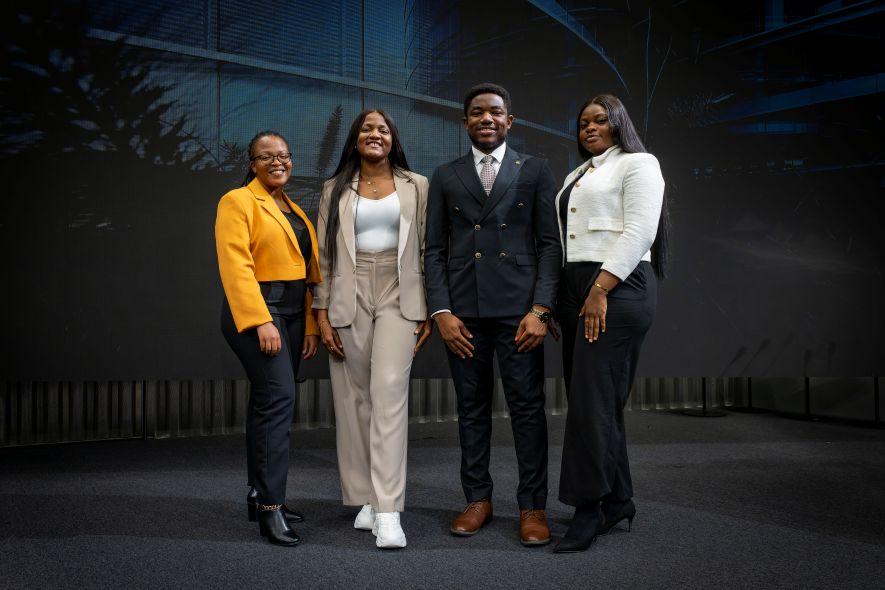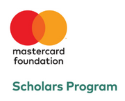
Submitted by Chibuzor Ndubisi on Thu, 12/12/2024 - 16:15
From L-R: Simiso Shabangu, Cynthia Ugwu, Chibuzor Ndubisi, Titilola Hassan. Credits: Geneva Challenge | Geneva Graduate Institute
I’m extremely glad to have been part of a team from the University of Cambridge that secured the Second Place Prize at the Geneva Challenge 2024. This year’s competition, themed ‘The challenges of youth empowerment’, garnered interest from over 900 Master’s students across more than 200 interdisciplinary teams worldwide. Our team was selected as the best participating team from Europe, ultimately representing the continent at the final event.
The Advancing Development Goals International Contest, popularly known as the Geneva Challenge, is organised annually by the Geneva Graduate Institute to encourage youth-led problem solving for contemporary global challenges. The competition tackles a different theme each year on a relevant international development issue, and the focus on youth empowerment in 2024 highlighted the pressing need to address the obstacles faced by young people in living prosperous lives.
In response to this challenge, Mastercard Foundation Scholars Simiso Shabangu, Cynthia Ugwu and I, alongside our colleague Titilola Hassan, teamed up to propose a unique solution targeted at vulnerable youth populations. Our idea, the Resilient Education for Advancing Camp Horizons (REACH) project, aims to improve access to education for youth in internally displaced persons’ (IDP) camps.
Our team recognised that the crisis of internal displacement leaves young people with little to no access to quality education, limiting their ability to thrive in the present and build towards a promising future. Project REACH was thus proposed as an integrated and technology-enabled solution through which youth of sufficient literacy levels would be trained and empowered to educate youth of lower literacy levels. This scalable model, we believed, would bridge the gap in learning opportunities for youth in IDP camps while kindling their enthusiasm to contribute positively within their communities.
The Geneva Challenge required teams to submit detailed proposals grounded in theory and indicative of the feasibility, originality, and impact of their solution. After a rigorous assessment process led by a steering committee of professors, Project REACH advanced to the semi-final stage as one of the top three entries from European universities. These entries were then evaluated by a jury of experts affiliated with the United Nations, which saw Project REACH move on to the global finals as the best in Europe. Following a keenly contested presentation day, we clinched the Second Place Prize overall.
Geneva Challenge finalists with the competition jury
We are incredibly proud to have represented the University of Cambridge in this competition, and we are honoured to have received the Second Place Prize. Our goal with Project REACH was to develop a solution that could make a real difference, especially in an area receiving relatively little attention. The Geneva Challenge has given us a stamp of approval on not only the effectiveness of our solution in driving change, but also our capacity to succeed as agents of this change.
As a team, we believe that a win for us is a win for the Mastercard Foundation Scholars Program at the University of Cambridge. In giving us the opportunity and support to study at this prestigious institution, and by instilling a sense of community among students, the programme has helped us more deeply understand the indispensable role of education for young people today. We are grateful to the Mastercard Foundation for helping bring us together to make this possible.
Looking ahead, our team is exploring opportunities to implement Project REACH in partnership with educational, humanitarian, and philanthropic organisations. We strongly encourage future Mastercard Foundation Scholars at Cambridge to participate in the Geneva Challenge, as it provides a platform to contribute towards solving the greatest challenges of our time.


